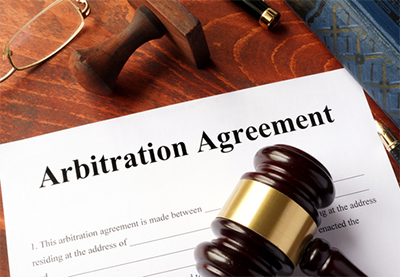
In July, we reported that the Supreme Court scheduled oral arguments to settle the circuit split of whether mandatory class action waivers violate section 7 of the National Labor Relations Act (“NLRA”).
Last month, both sides argued before the Court: the pro-employer representatives argued that arbitration agreements containing class waivers must be enforced under the FAA (representing the Second, Fifth and Eighth Circuits) while the pro-employee representatives argued that class waiver provisions contained in arbitration agreements are illegal under the NLRA and thus, not subject to the FAA (representing the Sixth, Seventh and Ninth Circuits).
Notwithstanding the U.S. Department of Justice’s (“DOJ”) contrary position under the Trump administration, now arguing in favor of enforceability of class waivers, the arguments went as expected.
The pro-employer representatives, backed by the DOJ, argued:
- Class action waivers are a routine extension of “well-trod” law.
- With class action waivers, employees sacrifice no substantive rights under the NLRA: employees may still act together collectively in the workplace and are limited only when they reach an arbitral forum.
- The FAA will only yield to an express demand from Congress, and the NLRA does not mention arbitrations.
As expected, the four most liberal justices – Justices Ginsburg, Breyer, Sotomayor and Kagan – led the charge on the issue, uniting strongly against class action waiver. The Justices counter-argued:
- The matter is far from routine.
- The NLRA covers more than workplace coordination, and class action waivers require a waiver of any coordinated action by employees.
- Class action waivers undermine the intent of federal labor law. Employees do not really have “true liberty” to contract with employers; rather, employment agreements are coercive and the NLRA was established to protect employees from just that.
Justice Kennedy, often a swing vote, attempted to bridge the gap. He asserted that even if employees must proceed to individual arbitrations, they may still coordinate some actions. The liberal justices noted what they perceived as holes in the reasoning, including: any coordination would be scant, given the nature of the confidentiality provisions governing arbitrations; and certain arguments, like common pattern and practice, are more difficult to emphasize in individual actions.
The more conservative justices – Chief Justice Roberts and Justices Thomas, Alito and Gorsuch – were subdued during oral arguments, with only one Justice – Justice Alito – questioning the pro-employer representatives.
The pro-employee representatives engaged mostly with the liberal justices, emphasizing the stakes were high in that 25 million employees were currently restrained by the class waivers. Though the National Labor Relations Board (“NLRB”) took the same stance, most were not prepared for its major concession during oral argument. Specifically, Chief Justice Roberts asked the NLRB representative to compare two agreements and discuss whether both were unlawful: the first agreement forbade class arbitration, while the second allowed class arbitration, but only when there was a class of at least 50 employees. Contrary to the pro-employee representative’s argument that both agreements were unlawful, the NLRB stated that only the first agreement forbidding class arbitration was unlawful, reasoning that the NLRA addresses only employer prohibitions and not forum rules. Notably, two days later, the NLRB wrote to the Court Clerk amending its answer to state that both agreements were unlawful and that it misunderstood the question during oral argument.
Though oral argument provided insight into the Justices positions on the issue, it remains to be seen how the Court will ultimately decide whether employers may still require employees to sign arbitration agreements with class action waivers as a condition of employment.

